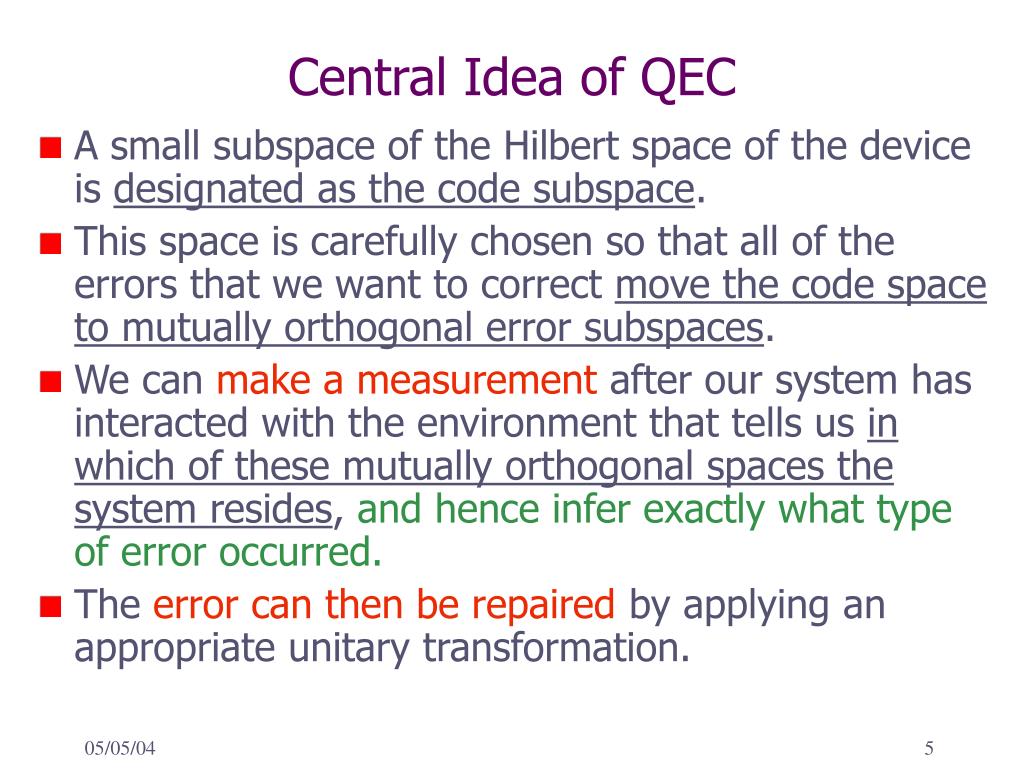

This makes large scale quantum computation so difficult as to be practically impossible unless error correction methods are used.

sensitive to imprecision in the computer and to unwanted coupling between the computer and the rest of the world. In general, this is a hard problem, but for well-chosen codes, it can be solved efficiently either exactly or heuristically.Įrror correction is especially important in quantum computers, because efficient quantum algorithms make use of large scale quantum interference, which is fragile, i.e. The decoding problem consists in inferring the recovery with greatest probability of success given the error syndrome. When a local error affects the system, it leaves a detectable imprint-called the error syndrome. The basic principle of quantum error correction (QEC) is to encode information into the long-range correlations of entangled quantum many-body states in such a way that it cannot be accessed locally. Quantum error correction is concerned with ensuring the robustness of quantum computation against noise (as in classical error correction) and particularly against quantum noise and quantum decoherence. Order-theoretic structure in quantum mechanics Interacting field algebra of observables, Bogoliubov's formula Normal-ordered product, time-ordered products, retarded product Quantum operation, quantum effect, effect algebra Quantum operator (in geometric quantization)

Quantum probability theory – observables and states


 0 kommentar(er)
0 kommentar(er)
